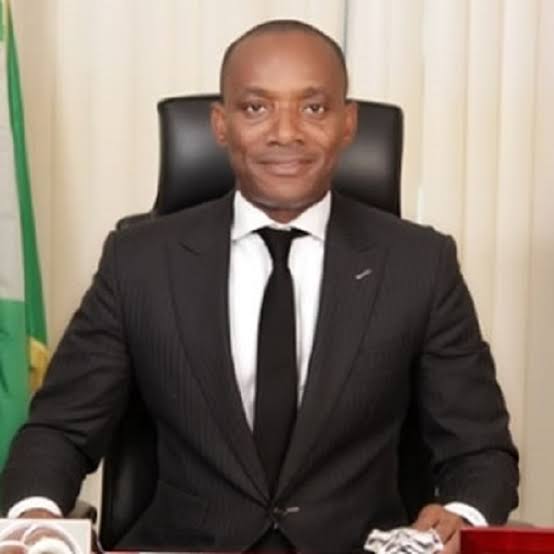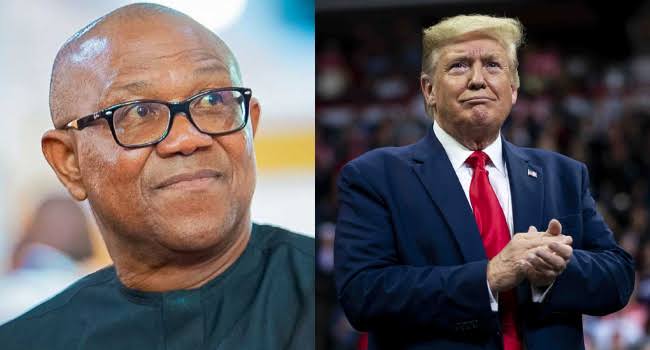In light of the increasing occurrence of coups in Africa, particularly in the West African subregion, the Federal Government of Nigeria has dismissed any concerns of a coup taking place within its borders.
The government asserts that Nigeria has moved beyond the era of forcible government takeovers, emphasizing that Nigerians have wholeheartedly embraced democracy and that the country’s democratic institutions are growing stronger.
The recent coups witnessed in some African nations, including neighboring Niger Republic, do not instill any fear in Nigeria.
The Minister of Information and National Orientation, Mohammed Idris, expressed this sentiment in an interview recently.
He stated, “I can confidently assure you that there is no fear or apprehension whatsoever. We have progressed beyond that stage, and Nigeria has been a democratic nation for a considerable period, with our democratic institutions continually strengthening.”
Meanwhile, several retired generals, in separate interviews with the media, have issued a warning that the only way to prevent coups on the continent is for elected leaders to uphold constitutional provisions and ensure good governance in their respective countries. While not condoning military takeovers, they stressed the importance of leaders being accountable and refraining from repressive rule if coups are to become a thing of the past.
The continent witnessed its latest coup and the second one in 2023 on Wednesday when some military personnel in Gabon seized power and placed the ousted President, Ali Bongo, and his family members under house arrest. Gabon is in Central Africa.
After the forceful takeover, which brought to seven the number of coups on the continent within the past three years, the soldiers announced the annulment of the presidential election that renewed Bongo’s prolonged rule, bringing to an abrupt end the Bongo family’s 56-year rule in the country.
Ali’s father, Omar Bongo, ruled the country from 1967 to 2009, and after his death, his son took over and remained in power for the past 18 years until he was overthrown by the military.
About one month earlier, some soldiers in Niger Republic on July 26, 2023, also seized power and placed the ousted President, Mohamed Bazoum, under house arrest. The junta has since asked for a three-year transition period, which the Economic Community of West African States rejected, insisting that the junta should return the country to democracy or be forced to do so by its task force. Niger is in West Africa.
Also, on January 24, 2002, the military in West Africa’s Burkina Faso ousted the then President Roch Marc Christian Kabore, while soldiers in Sudan, led by General Abdel Fattah al-Burhan, sacked the civilian rule in place in the country and arrested political leaders while declaring a state of emergency. Sudan is in North Africa.
About two years ago, September 5, 2021 precisely, the then President of Guinea, Alpha Conde, was sacked by the military and was replaced by Colonel Mamady Doumbouya. After his sacking, he wasn’t declared “free” by the military until April, 2023. The junta promised to return the country to civil rule by the end of 2024. Guinea is also in West Africa.
Prior to this, Mali, also in West Africa, witnessed two coup within a year. On August 18, 2020, the then President, Ibrahim Boubacar Keita, was ousted by the military and a transitional leader installed. But by May, 2021, about nine months after, the military arrested the President and the Prime Minister, after which they inaugurated one of them as the transitional President. They also promised a return to democracy in 2024.
Independent of these, the military also retained its hold on power in Chad after its President, Idriss Deby, was killed on the battlefield on April 20, 2021. His son, General Mahamat Idriss Deby Itno, has been in power since then despite a promised two-year transitional period. Chad is in Central Africa.
Out of the seven countries, West Africa, where Nigeria belongs, has recorded four coups, which is the highest; Central Africa has recorded two while North Africa recorded one.
No pressure –FG, on account of the intensifying coup and growing apprehension that it could spread to other countries on the continent, the Federal Government has said Nigerians have nothing to worry about.
Speaking further, the information and national orientation minister stated, “Nigeria is a different country. Nigerians will no longer accept such, so it will be difficult for anyone, at this point of our national development, to come out to do that or for us to start nursing any apprehension. We have very strong democratic institutions, so it is very difficult for anybody to just take up arms against the state. So, there is no apprehension at all.
“We have to stand up against military takeover anywhere on the continent. That does not mean we are afraid that such could happen in Nigeria. The fact that something like that happened elsewhere does not mean we have to live in fear. No, we have gone past that.”
…dismisses military shakeup
In what appears to be a swift response through shakeup in their military hierarchies, Presidents Paul Kagame of Rwanda and Paul Biya of Cameroon, both of whom have spent decades in office, retired a total of 1,029 senior military officers on Thursday. While Kagame has spent 23 years in office, 90-year-old Biya has been in office since 1982, making 41 years.
The Rwanda Defence Force, according to a local national newspaper, News Times, approved the retirement of 12 generals, including two four-star generals, James Kabarebe and Fred Ibingira, two three-star generals, Charles Kayonga and Frank Mushyo Kamanzi, and several officers.
Among those retired are two four-star generals, James Kabarebe and Fred Ibingira, two three-star generals, Charles Kayonga and Frank Mushyo Kamanzi. Kabarebe and Kayonga have previously served as Chief of Defence Staff of RDF, while the other two have been service chiefs previously.
“The President has also approved the retirement of 83 senior officers, six junior officers and 86 senior non-commissioned officers, 678 whose contracts ended and 160 medical discharges,” the statement added.
In Cameroon, the President reshuffled the military with new appointments to the Controle Generale des Armees. The new controllers are Capt Ajeagah Njei Félix Colonel and Colonel Nguema Ondo Bertin Bourger. Appointments were also made to the positions of Technical Advisers, Bureau Commissariat, and Air Force Technical Inspector.
When asked if there would be any shakeup in Nigeria, the minister said government did not have such plans, adding that Nigeria’s democracy remained stable and peaceful. He added, “That does not even arise. Let’s not talk about what does not even exist at all. Nigeria is stable and peaceful, and all our democratic institutions are very strong and are getting stronger. Like I said, there is no fear or apprehension at all.”
‘Tinubu wants peace’. The minister also emphasised that President Bola Tinubu, who is also the Chairman of ECOWAS, is not interested in any war with Niger.
Many Nigerians had rejected the initial threat by the Tinubu-led ECOWAS that it would consider military action against Niger if it failed to reinstate Bazoum and revert to democratic rule within seven days.
Meanwhile, after persuasion and several peace moves, ECOWAS appears to be considering peace moves, a position adopted by the subregional Committee of Chiefs of Defence Staff.
Tinubu on Thursday proposed a nine-month-transition period to the junta.
The minister however stressed that Tinubu remained committed to peace in Niger.
He said, “The President is interested in the peaceful resolution of this conflict. Of course, he has maintained consistently that there is nothing off the table, but the preference and number one choice for Mr President is that there should be a very peaceful resolution of the conflict there or the return to democratic order.










